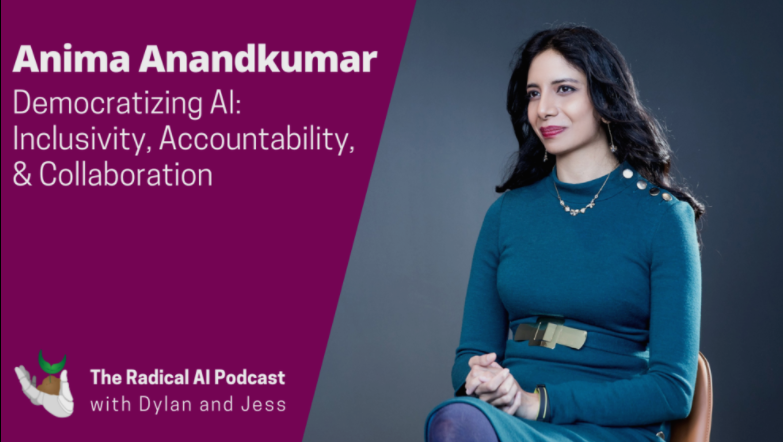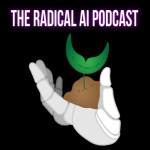
ΑΙhub.org
Radical AI podcast: featuring Anima Anandkumar

Hosted by Dylan Doyle-Burke and Jessie J Smith, Radical AI is a podcast featuring the voices of the future in the field of artificial intelligence ethics. In this episode Jess and Dylan chat to Anima Anandkumar about democratizing AI.
Democratizing AI: inclusivity, accountability, & collaboration with Anima Anandkumar
What are current attitudes towards AI Ethics from within the tech industry? How can we make computer science a more inclusive discipline for women? What does it mean to democratize AI? Why should we? How can we?
To answer these questions and more we welcome Dr Anima Anandkumar to the show. Anima holds dual positions in academia and industry. In academia – she is a professor in the Caltech Computing and Mathematical Sciences department. In Industry – she is the director of machine learning research at NVIDIA. At NVIDIA, she is leading the research group that develops next-generation AI algorithms. Anima is also the youngest named chair professor at Caltech, where she co-leads the AI4science initiative. Full show notes for this episode can be found at Radical AI.
Listen to the episode below:
About Radical AI:
Hosted by Dylan Doyle-Burke, a PhD student at the University of Denver, and Jessie J Smith, a PhD student at the University of Colorado Boulder, Radical AI is a podcast featuring the voices of the future in the field of Artificial Intelligence Ethics.
Radical AI lifts up people, ideas, and stories that represent the cutting edge in AI, philosophy, and machine learning. In a world where platforms far too often feature the status quo and the usual suspects, Radical AI is a breath of fresh air whose mission is “To create an engaging, professional, educational and accessible platform centering marginalized or otherwise radical voices in industry and the academy for dialogue, collaboration, and debate to co-create the field of Artificial Intelligence Ethics.”
Through interviews with rising stars and experts in the field we boldly engage with the topics that are transforming our world like bias, discrimination, identity, accessibility, privacy, and issues of morality.
To find more information regarding the project, including podcast episode transcripts and show notes, please visit Radical AI.









